It’s tough standing out from the crowd when you are looking for employment so in this article we share some tips to create the perfect targeted job-specific resume.
We will be covering:
- Your job description – Area of expertise and transferable skills.
- Resume profile title.
- Applicant tracking system – Use of keywords and quantifying information.
- Job-specific skills – Bucketing and key skills.
Let’s get started
An elaborate guide to making a targeted job-specific resume
In today’s job market, the competition is very high.
Online job portals have made it incredibly easier for job seekers to apply to multiple job posts.
Each job post receives such an overwhelming amount of applicants so it is tough to choose the right candidate.
Did you know that of all the applicants a job post attracts, only 20 per cent get shortlisted for an interview?
So, to make sure you cut through the competition and make your application reach the right people is through a resume.
The only way you can impress the recruiter is by curating a stellar resume that showcases your relevant skills and achievements to the job profile.
Further, considering the number of people applying to these job posts, it is important to bring your resume in-line with the job description and responsibilities.
So simply having a great resume will not cut it, it needs to be relevant to the target profile.
That is why you need to make sure that your resume has not only your major strengths but also caters to the job requirements.
Let’s begin with an elaborate guide on making a targeted job-specific resume:
Job Description
For recruiters, a lot of research and time goes into designing a stellar job description.
It entails all the relevant information required in a potential candidate. For instance:
- Recruiters will ask the department heads/managers as to what skills the candidate should have and what are the requirements for job experience.
- It will have all the essentials required to make sure the candidate fits perfectly in the company.
- A range of non-job-specific skills required to perform the functions correctly.
Hence, while writing your resume, it becomes really important to focus on the key areas of a job description and showcase them in your resume.
Further, the job description for each company will be different.
For instance, for a marketing professional, some companies may want you to focus on social media and some may want you to adhere to traditional marketing techniques.
That is why it becomes important to modify your resume before submitting it to the recruiter.
By using the job description, you curate a targeted job-specific resume that matches your target profile and the required key expertise.
But, how do you achieve this?
Let’s say you chose a few keywords from the job description but you have no idea where to write them.
But even if you write them, would it be enough?
Because merely stuffing your resume with such keywords is not enough.
You need to place them accurately in places where they show the most impact.
So, here is how you can write them in your resume:
Join the conversation - We are talking about creating a job-specific resume - Here is how you do it!Click To TweetArea of expertise
Make a list of the required skills in the description and sprinkle them throughout the resume without compromising the legitimacy of the content.
For example, if you are a sales professional and you do not have expertise in “market penetration”, you should not write it in your resume.
The idea is that you should be able to substantiate all the mentioned skills in front of the recruiter and not be one of those applicants who lie on their resume.
Transferable skills
A few aspects of every job require a set of transferable skills.
These skills are not relevant to the target profile.
For example, leadership skills, analytical research, etc.
However, these skills are required for some key tasks.
For instance, you have a client-facing role, communication skills can be highly critical for your profile.
Or, if you have to conduct a lot of presentations, public speaking skills can be of paramount importance.
So, identify these skills from the job description and research about the profile, instead of making a blunder of mindlessly listing soft skills and personality traits that are irrelevant to the target profile.
Join the conversation - How do you create a targeted job-specific resume that stands out? Click To TweetResume profile title
This can be extremely helpful in creating a job-specific resume.
For instance, if you consider optimizing the profile title as per the key responsibilities listed in the job post, it will be highly likely that the recruiter shortlists your profile as the profile title is the first thing that the recruiter notices.
Let’s say you are a technical consultant but the job post greatly emphasizes on providing “IT strategic solutions” to the clients.
So instead of just writing your job title, you can add this information to your profile title as “Technical Consultant & IT Strategic Solutions Professionals”
But, it is not limited to the job functions.
For instance, if you are a business development professional but the job description needs someone who can spearhead digital marketing practices too.
You can optimize the title by mentioning a certification to improve the skills gap, for example, Brand Developer & Certified Digital Marketing Professional.
Further, for candidates who do not have any experience, they can just write their degree along with the major/specialization.
If you have a specialization in computer science, you can write the profile title as “Computer Science Graduate”.
So, even if you do not have any working experience, the idea is to align your profile/resume to the target profile.
Applicant Tracking System
As we discussed above how companies receive a lot of job applications, it is important for them to identify the right talent.
But, considering the number of resumes a recruiter receives in a day, he does not personally shortlist them.
To tackle this problem most organizations have started deploying talent management software such as applicant tracking system (ATS), to filter the irrelevant candidates.
The software is set up with profile-specific keywords and on the basis of these keywords, this software shortlists resumes.
To give you an analogy, you may think of it in terms of search engine optimization.
How professionals write content on their website by optimizing it based on a set of keywords to improve the blog’s performance on search engine results.
The same principle can be applied here as well.
So, here is how you can change your resume as per ATS:
Related Article
8 Tips On SEO Copywriting That Can Help You Rank Better
Use keywords
- While keeping the content and its legitimacy in mind, design your targeted job-s[ecific resume with a set of keywords.
- Make sure that these keywords are in alignment with the target profile/industry.
- Filter keywords by researching about the profile and industry you are targeting, and place these keywords in your resume across different sections
- You can incorporate these in the form of skills, statements in the professional experience, in your resume summary or modules in certifications/educational degrees.
Quantify information
You can create a concrete impact of your contributions by quantifying your statements.
Let’s say you ended up with the keyword “LinkedIn presence” after conducting thorough research.
You can show this as “Improved brand’s LinkedIn presence by achieving 1000+ connections and sending out personalized messages”.
This method helps you substantiate the keywords you mention in your resume.
Job-specific skills
To create a resume that resonates with the target profile, you need to optimize your skills in a manner that can be easily read at a glance.
So, your work does not end solely with sprinkling your resume with job-related keywords.
You are creating your resume just for the applicant tracking system, the recruiter will look at your resume as well.
And, unlike the ATS, the recruiter is not programmed to read your resume in a specific manner.
Thus, you need to make sure the required skills in your resume can be read at a glance.
Here is how you can achieve that:
Bucketing
This method is incredibly effective in improving the readability of your resume.
You need to select a few statements in the professional experience section and assign them relevant subheadings.
For example, “team management & budget planning”, “reports generation & stakeholder management”, etc.
To gain a concrete idea on how to reflect it in your resume, check the image below:

Key Skills
As you are trying to make the recruiter’s work easier, this section is extremely important for placing keywords that showcase your expertise.
But, you need to make sure that you do not add skills and expertise that cannot validate in front of the recruiter.
But, there are always grey areas for you to utilize.
For example, if you are adding “interpersonal skills” even if you do have any experience in it, you can write it in your resume if it is listed as a requirement.
But, if you are doing the same thing with core skills then it will land you in trouble.
So, even though these keywords are important, make sure you do not exploit them just for the sake of writing them.
Further, you need to make sure you craft function-oriented skills.
Let’s say the job post states the applicant must be able to manage the budget.
You can write this in the skills section as “Budget Management, or Budget Planning”.
Check the example below:

Summary
A summary is an overview of your resume and recruiters, before going through your resume, will read it first.
That is why it is written right below your name and profile title.
So, how can you use the professional summary to make your resume job-specific?
Let’s say the profile you are targeting has the following requirements:
- 3 years of minimum experience
- Should possess social media management skills
- Must be a certified digital marketing professional
- Should have experience in leading teams
So, as time is a major factor that decides the fate of your application, even though the above information can be extracted upon going through your resume.
It is highly likely that it will be sidelined because it is not visible at a glance.
In such cases, you can leverage the summary to showcase the fact that your profile consists of these requirements.
Take a look at the summary below and see how each requirement has been mentioned:
“3+ years experienced Brand Manager & Certified Digital Marketing Professional with a prolific record of implementing marketing and content promotion strategies to social media platforms to improve brand presence.
Adept at developing high-performance culture among employees by deploying strategic performance evaluation methods and incentives. ”.
Employee Research
You may come across job posts where you cannot gain any insights into what the working area of the job will look like.
Even though there may be pointers in terms of the job title and requirements, it is highly likely that it is not enough to make your resume in-line with the sought skills.
So, if you cannot gather enough information from the job description, research on the company’s employees and identify their working areas.
If you can find professionals who have the same job title as the one you are targeting, it can do wonders for you.
Researching the target company’s employees will allow you to fetch information regarding job skills and requirements.
To do this, you can use digital platforms like Glassdoor, LinkedIn, etc. to look for professionals working with your targeted company.
Further, Glassdoor has a category where it allows users to write an experience of their interview and job application process with the company.
You can leverage this information to modify your resume.
But, the idea is identifying skills that the managers/recruiters of the targeted company give the most value to, and if you can find professionals who are already working with the company you are targeting, you can identify skills and the work they perform and highlight the same.
However, make sure you can substantiate each skill and requirement in your resume.
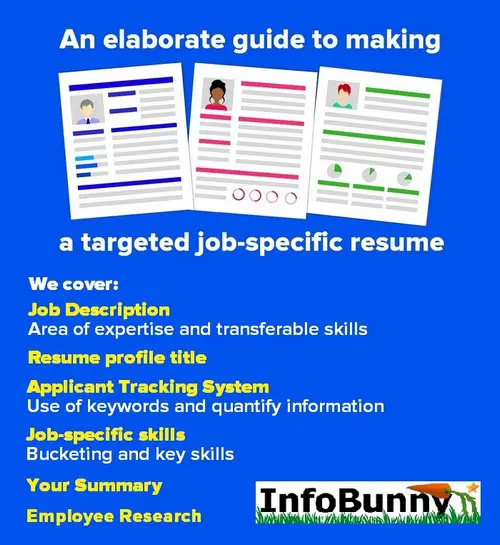
Key Takeaways
Below, a summary a few key takeaways of making a targeted job-specific resume:
- Meticulously read the job description to extract keywords and look for areas in your resume where you can incorporate these skills.
- Modify the profile title of your resume as per key requirements in the job post.
- Beat the bots by incorporating the job-related keywords to your resume and attaining a balance by substantiating the information.
- Writing and highlighting relevant skills to ease the recruiter’s work.
- As a precautionary measure, after you complete your resume, match it with the job description and correctly name all the sections in your resume to pass the ATS.
Now it is over to you.
Have you written your resume?
Is it job-specific?
Did you use any of our tips for writing a targeted job-specific resume?
Let us know in the comments section below.
Please note we don’t allow spammy comments so make sure you have something to really say when you comment and remember to follow the comments so that you are notified when we reply.
Regards Dexter
Related Articles
How to start a blog
How To Promote Your Content On Social Media
7 Proven FOMO Marketing Tips That Will Skyrocket Ecommerce Sales
In this new article, we are talking about the importance of using a VPN and offer you some insight to find the best value VPN for the money that you will be spending.
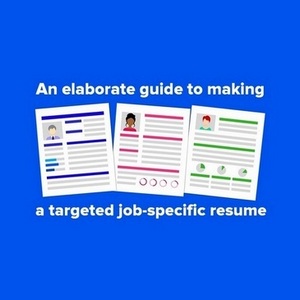


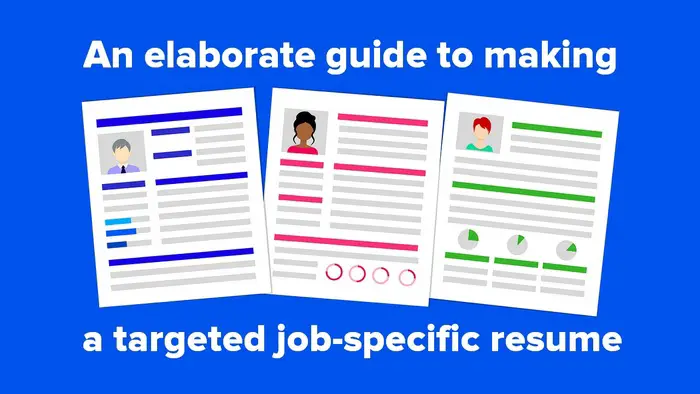
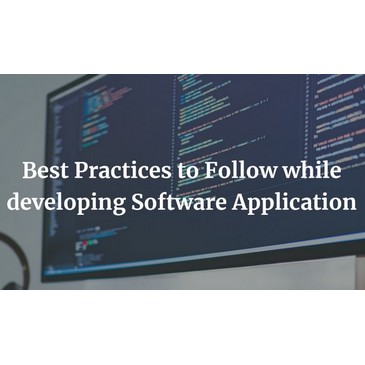

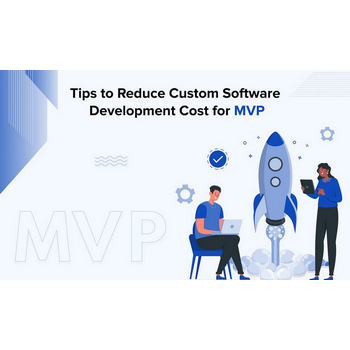





Leave a Reply